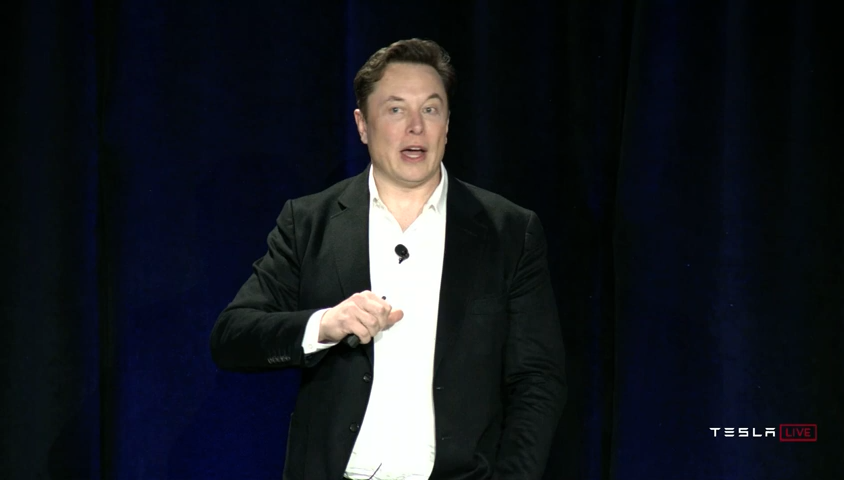SEC Responds After Elon Musk’s ‘Unrelenting Harassment’ Allegation

US financial watchdog the SEC responds, after Elon Musk and Tesla made a ‘harassment’ allegation last week to a US court in Manhattan
The US Securities and Exchange Commission (SEC) has pushed back against the allegations made last week by Elon Musk and Tesla.
The allegations against the US financial watchdog came in a letter from Tesla and Elon Musk last Thursday, addressed to US District Judge Alison Nathan in Manhattan.
Judge Alison Nathan presides over the 2018 SEC settlement with Tesla and Elon Musk, and now the SEC last week refuted Musk’s allegations it was not distributing a fine to Tesla shareholders. It also argued Tesla was not following proper procedures.

SEC settlement
The issue began back in August 2018, when Elon Musk unexpectedly tweeted that he was considering taking Tesla private and that he had secured funding to do so.
Tesla stock then went into a period of unusual volatility and the privatisation deal never materialised.
As a result, Musk was almost immediately hit with two lawsuits which alleged that Musk’s tweets were fraudulent effort to attack short sellers.
A further lawsuit was added last November, when investment bank JPMorgan Chase also sued Tesla for $162 million, alleging Elon Musk’s privatisation tweet in 2018 cost it millions of dollars.
Those privatisation tweets brought Musk to the attention of the SEC, which accused Musk of securities fraud, and alleged he made a series of “false and misleading” tweets about potentially taking Tesla private.
Indeed, the SEC sued Tesla and sought to ban Elon Musk from acting as an officer or director of a publicly traded company.
In the end, the US financial regulator forced Musk to step down as chairman of Tesla and pay $20m in penalties.
In addition, Tesla itself also had to pay a $20 million penalty.
Musk however was allowed to retain the CEO role.
As part of that deal, Musk had to submit any public statements (including tweets) about the company’s finances to vetting by its legal counsel before publishing them.
The $40m fine collected by the SEC from Elon Musk and Tesla was then supposed to be distributed to Tesla shareholders.
Harassment allegations
But then last week Tesla and Elon Musk in a letter to Judge Alison Nathan, accused the SEC of ‘unrelenting harassment’.
They accused the SEC of harassing them with an “endless” and “unrelenting” investigation to punish Musk for being an outspoken critic of the government.
Alex Spiro, a lawyer for Musk and Tesla accused the SEC of ignoring its commitment to distribute to shareholders the $40 million in fines, while instead “devoting its formidable resources to endless, unfounded investigations” into Musk and Tesla.
Spiro asked Judge Nathan to schedule a conference to find out why the SEC is “issuing subpoenas unilaterally” without court approval, and why the money isn’t being distributed.
Last June for example the SEC notified Tesla that two of Musk’s tweets from 2019 and 2020 – one about Tesla’s solar roof production volumes and one about the company’s stock price – hadn’t received the required pre-approval.
SEC responds
The SEC responded in its own letter to Judge Nathan on Friday, CNBC reported.
The SEC’s Stephen Buchholz reportedly said the agency was actually making progress on the task of distributing the $40m fine to Tesla shareholders, but the matter was fairly complex.
The SEC’s Buchholz reportedly noted that Tesla had never expressed any concern about this to the agency before and that SEC staff expect to submit a “proposed plan of distribution” to the court for approval by the end of March 2022.
The SEC’s letter also argued that Tesla was not following proper procedures to challenge any subpoena the agency had issued as an independent regulator, aside from the court proceedings.
Escalating battle
Elon Musk has engaged in a number of battles with regulators and local authorities over the years.
On 7 February Tesla disclosed it had received a subpoena from the SEC about its compliance with the 2018 settlement.
That latest subpoena was reportedly issued on 16 November, ten days after Musk had polled his Twitter followers on whether he should sell 10 percent of his Tesla stake, triggering a sell-off.
Tesla has also recently been hit with a lawsuit by California’s Department of Fair Employment and Housing, which alleged black workers were forced to tolerate racial discrimination at Tesla’s Fremont, California, factory.
Tesla called that lawsuit misguided.
The world’s most valuable car maker is also trying to reduce or dismiss an $137 million jury award to a black former elevator operator for subjecting him to a hostile work environment at the Fremont plant.
Bad blood
It is fair to say that Musk has a fractious relationship with the US financial watchdog, and he did not exactly endear himself to the SEC after he publicly attacked the watchdog – on multiple occasions.
In October 2018 Musk tweeted that the US agency was the “shortseller enrichment commission.”
Then in December 2018 Musk publicly admitted that he had “no respect” for the SEC.
Worse was to come in July 2020 when Musk tweeted: “SEC, three letter acronym, middle word is Elon’s.”
And the feeling is mutual, with some federal officials feeling that Musk got away lightly in the SEC’s agreement with Tesla.
In May 2019 SEC commissioner Robert Jackson made a rare public statement, stating he did not support the agreement reached between Musk and the SEC – citing Mr Musk’s conduct.